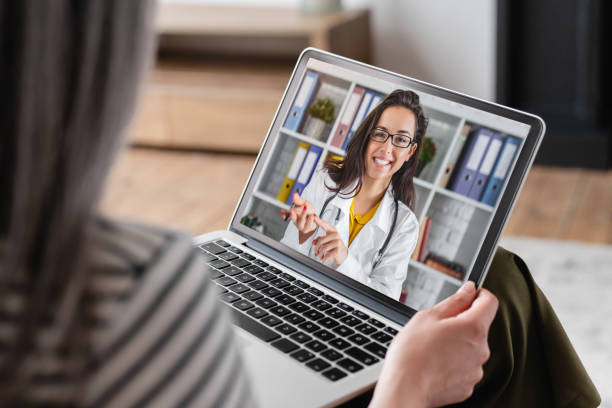Empowering Patient Care: Practical Applications of Technology in Virtual Clinics
Virtual clinics are revolutionizing healthcare by using advanced technology to bring medical services to patients' homes. No longer a futuristic idea, virtual healthcare is now a daily, practical solution for those seeking timely, cost-effective, and accessible care. This article explores how technology powers virtual clinics, highlighting practical features and real-world benefits that improve patient care.
Virtual clinics are revolutionizing healthcare by using advanced technology to bring medical services to patients' homes. No longer a futuristic idea, virtual healthcare is now a daily, practical solution for those seeking timely, cost-effective, and accessible care. This article explores how technology powers virtual clinics, highlighting practical features and real-world benefits that improve patient care.

1. Teleconsultations: The Foundation of Virtual Clinics
At the heart of every virtual clinic is video-based consultation technology. With a stable internet connection and a smartphone or computer, patients can book appointments and speak to licensed doctors in real time—without waiting weeks for an in-person visit.
Practical Benefits:
• Ideal for minor illnesses, prescription refills, or follow-ups.
• Reduces exposure to infections, especially for immunocompromised or elderly patients.
• Saves travel time and costs for patients in remote or rural areas.
2. E-Prescriptions and Online Records
Virtual clinics integrate electronic prescribing (e-prescriptions), enabling doctors to send prescriptions directly to a patient’s chosen pharmacy. They also maintain digital health records that patients can access through a secure portal.
How It Helps:
• Avoids the need for paper prescriptions or physical storage of medical history.
• Patients can easily view lab results, previous consultations, and medication history anytime.
• Pharmacies can instantly receive prescriptions and prepare medications for pick-up or delivery.
3. Remote Monitoring with Smart Devices
For chronic conditions like diabetes, heart disease, or hypertension, virtual clinics often support remote monitoring using wearable devices and smart tools such as:
• Blood pressure monitors
• Glucometers
• Fitness trackers (e.g., heart rate, sleep, oxygen levels)
Patient Advantage:
• Health data is shared automatically with doctors for continuous oversight.
• Alerts are triggered if readings cross dangerous thresholds, allowing timely medical intervention.
• Encourages patient engagement and accountability in managing their own health.
4. AI-Powered Symptom Checkers and Chatbots
Many virtual care platforms use AI chatbots to assist with pre-consultation triage. Patients enter their symptoms, and the system offers possible causes or suggests whether a live consultation is needed.
Why This Matters:
• Reduces unnecessary appointments for minor issues.
• Helps prioritize patients with urgent concerns.
• Offers 24/7 initial guidance, especially outside clinic hours.
5. User-Friendly Mobile Apps for On-the-Go Care
Most virtual clinics operate through secure apps that allow users to:
• Book appointments
• Upload insurance documents
• Receive reminders
• View and download test results
Daily Use Case:
Imagine having a cold while traveling—just open the app, consult a doctor in minutes, and get medicine sent to a nearby pharmacy, all from your phone.
6. Security and Confidentiality
Healthcare data is extremely sensitive, so virtual clinics rely on technologies like:
• End-to-end encryption
• Two-factor authentication
• Secure cloud storage
Practical Implications:
• Ensures your health information is not accessed or misused.
• Complies with regulations such as HIPAA (US) or GDPR (UK/EU).
• Builds trust, especially when dealing with mental health or private matters.
7. Personalized Care Through Data and Automation
By analyzing patient history, virtual clinics can:
• Suggest check-ups based on age and condition
• Send reminders for screenings or vaccinations
• Recommend lifestyle changes or digital wellness programs
Example:
A diabetic patient may receive automatic alerts to schedule blood tests every three months, plus reminders to refill medication on time.
8. Who Should Use Virtual Clinics—and When
Virtual clinics are especially effective for:
• Routine care (colds, UTIs, rashes)
• Mental health support (counseling, therapy follow-ups)
• Managing chronic illnesses
• Access to second opinions or specialists
However, emergencies like chest pain, serious injuries, or severe breathing issues still require physical visits to hospitals or urgent care.
Conclusion: Making Healthcare Work for You
Technology has made virtual clinics not just possible, but practical. From smart wearables and AI triage to e-prescriptions and mobile access, these tools make it easier than ever to take control of your health. For families, seniors, busy professionals, or those in remote areas, virtual care offers a flexible and secure way to stay on top of healthcare needs.